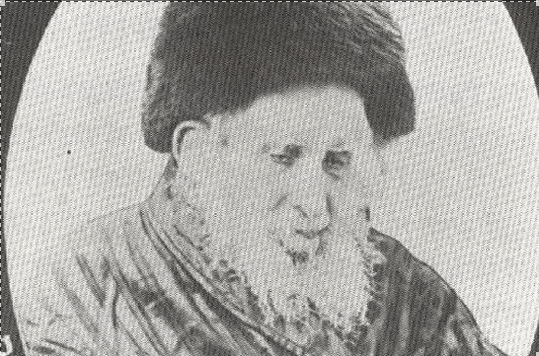The first time I heard about this phenomenon I was in the States. People told me you can meet teenagers with skullcaps and tzitzis who regularly desecrate Shabbat. How? Well, they listen to kiddush and even go to synagogue, but don’t expect them not to send text messages for all of Shabbat.
Ten years ago, it sounded strange to me. But since then, a lot of water went under the bridge, the personal phone has become more addictive than ever, and the possibilty a person can return with a prayer shawl from the Shabbat prayer in the synagogue with his smart phone in his pocket is no longer so rare.
Once, the Jewish world was clearly divided into Sabbath-observant and non-Sabbath-observant people. Of course, there were always ‘Traditional Jews’ who made Kiddush and then they went to the soccer game, but they never called themselves 'Sabbath-keepers'. But today; anyone wanting the title Shabbat Obsrevant can usurp it for himself. “I answer the phone and send text messages on Shabbat, but it's just to keep in touch with my family and friends, it's part of my Shabbat pleasure.” Or: “I keep Shabbat, but I use the phone and the computer and turn on the light, I do not think I'm sinning by texting on Whatsapp or watching movies on Saturday”.
Not all these people claiming to be Sabbath-observant look religious. But it’s becoming more frequent to see the 'Sabbath-observant’ camp according to their ‘expanded definition' include religious looking people as well. Girls with long skirts and boys with skullcaps explain that they are Sabbath-observant, of course, but what will happen if they send a number of SMS messages to their friends to coordinate their Saturday night entertainment? One thing should be clear. These youth are not on their way step by step to increased Shabbat observance. It’s clear that many people cannot move from Shabbat desecration to Shabbat observance with all its details and rules. But these people are not willing to admit that there is something called proper Shabbat observance. As far as they’re concerned what they’re doing is the preferred mode of keeping Shabbat… the oneg (pleasure) of Shabbat.
What exactly happened to keeping Shabbat? How was it was once clear to everyone that either you keep Shabbat according to Jewish law or you’re not keeping Shabbat? How is it possible that today anyone can rewrite the Shulchan Aruch and produce his own halachic guide for Shabbat conduct, saying that traveling on Shabbat is forbidden, but movies and telephone is okay? Once, Shabbat observance was a matter of black and white: If you used the phone on Shabbat, no one would call you ‘a Sabbath observer’. But today such judgment would be rejected as grossly interfering with someone's conscience. Who are we to judge who keeps Shabbat and who does not? Who decides what Shabbat is?

The answer, of course, is that G-d decides. Shabbat observance is one of the Ten Commandments given at Mount Sinai, and in Jewish tradition, all the details of the laws of Shabbat were also given at Sinai as oral law. For thousands of years, Jews didn’t doubt these laws, nor did they try to create a ‘Sabbath of their own’. True, there were no phones and computers. But not every prohibition involved difficult and tedious work obviously forbidden Sabbath. Women of yesteryear liked to embroider and sew. But even if it was 'part of their rest' they would never dream of sewing on Shabbat. And a Jew who declares himself Sabbath observant would never sit down and play piano on Shabbat only because: 'This is my Shabbat delight.'
Shabbat is undoubtedly a popular concept even amongst Jews not careful about halacha. Otherwise, it is impossible to explain why so many people want the title 'Shabbat observant'. After all, Saturday has features the noisy and hasty modern world finds attractive: a rest from work, family meals, meeting the extended family, time out from the crazy race of life … not to mention that no one objects to indulging in delightfully good food. But Shabbat observance is not a balance against the pace of life in the twenty-first century, nor is it a special social right. Generations of Jews kept Shabbat not to “relax a little bit from the crazy load” or a “chance to spend quality time with the children”. They kept Shabbat simply because G-d commanded them to. For the Sabbath was given as a sign of the covenant between the people of Israel and G-d. And more than once, they paid heavy prices for it; heavier than a 24-hour reprieve from Whatsapp.
But today it’s very easy to declare that we keep Shabbat' and actually stay in our comfort zone. We can make kiddush, eat, rest, and perhaps not even travel on Saturdays; who has the strength to get up from being a couch potato anyway! But to cut me off from technology and entertainment is too much to demand. We declare that Shabbat was given to us to rest, to savor. And we completely forget the commandment to keep Shabbat: “And the seventh day shall be holy for you, Shabbat of the Lord.”
Shabbat is from G-d. And He is the one who dictates to her the rules. “But you shall observe my Sabbaths, because it is a sign between me and you,” the Torah says. Since Shabbat is G-d’s, by what right can we decide how to define it?
Just think of a pregnant woman whom the doctor orders to stop working, and get bed rest. Imagine her saying, “Yes, I'm pregnant and must rest but I wash the house daily and go to a folk dance class, but this is how I rest and relax. Isn’t that what the doctor wants?” You'd think she’s crazy. After all, the doctor wants to save the fetus, and in order to achieve this, he orders her to rest. The rest he prescribed is not ‘rest as she defines it’. Its purpose is to preserve life and it is done according to the doctor's instructions. Similarly, the goal of keeping Shabbat is not “rest as I define it” but rather to keep the covenant between us and G-d – according to G-d's instructions. Want to dedicate the seventh day of the week to fun activities that reduce your blood pressure and tension level? You can. Just don’t call it 'Shabbat observance.'


